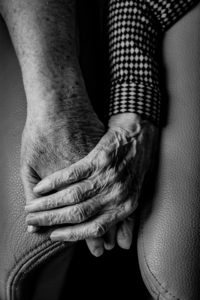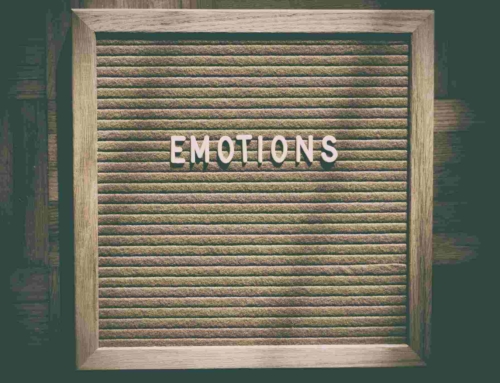Verbal abuse can be surprisingly difficult to detect. Think of the frog in boiling water analogy. Little by little, the heat is turned up, but the frog doesn’t realize the danger until it’s already in a dire situation.
 Verbal abuse can start subtly. The emotional dynamics involved (i.e., emotional abuse and psychological manipulation) mean that the abuse target usually blames themselves or feels guilty for their “role” in the abuse.
Verbal abuse can start subtly. The emotional dynamics involved (i.e., emotional abuse and psychological manipulation) mean that the abuse target usually blames themselves or feels guilty for their “role” in the abuse.
The cycle of abuse means that there is a honeymoon period in which apologies may happen, promises are made, and everything goes back to “normal” for a while until the tension builds again and there’s another incident or period of abuse.
The fact that a) abuse can be hard to detect and b) it is part of a cycle is what makes it so important to learn more about it. Whether you, your loved one or someone else you know experiences verbal abuse, the more educated you are about it, the more equipped you’ll be to identify and avoid it.
In this article, we’re going to discuss:
- The signs of verbal abuse.
- What experts say about verbal abuse.
- What to do if you’re in a verbally abusive relationship.
- What to do if someone you love is in a verbally abusive relationship.
- How counseling for verbal abuse can help you.
Signs and Types of Verbal Abuse
Verbal abuse can be covert or overt.
Covert verbal abuse is more subtle than what you might typically think of as abuse. It can involve blame, mind games, gaslighting, sarcasm, generalizations, irrational/circular conversations, defining reality, subtle threats, making black-and-white claims, joking at your expense, minimizing your concerns, etc.
Here are some more examples from Psychology Today:
- Opposing (everything you say is attacked).
- Blocking (changing subjects constantly, accusing you whenever you say something, indefinitely refusing to respond).
- Discounting and belittling (making it seem like you, your thoughts, feelings, and opinions don’t matter).
 Undermining and interrupting (cutting you off, speaking over you, and speaking for you).
Undermining and interrupting (cutting you off, speaking over you, and speaking for you).- Denying (making you feel crazy, denying things that have happened in the past, or denying reality as you know it).
Overt verbal abuse is easier to recognize, but that doesn’t mean that it’s easy to handle, avoid, or stop. It includes behaviors like cursing, yelling, screaming, name-calling, insults, threatening, constant criticism and contempt, ordering you around, angry rants, etc. Verbal abuse can be considered a type of emotional abuse, which is, “speech and/or behavior that’s derogating, controlling, punishing, or manipulative” (Psychology Today).
You might believe some version of the old saying that goes, “Sticks and stones may break my bones, but words can never hurt me,” but the truth is that words can hurt, traumatize, and cause physical damage through the stress, fear, and fight-or-flight response they provoke. Verbal abuse is not something to be taken lightly.
What Experts Say About Verbal Abuse
According to womenshealth.gov:
“Emotional and verbal abuse may begin suddenly. Some abusers may start out behaving normally and then begin abuse after a relationship is established. Some abusers may purposefully give a lot of love and attention, including compliments and requests to see you often, in the beginning of a relationship. Often, the abuser tries to make the other person feel strongly bonded to them, as though it is the two of them ‘against the world.’
Over time, abusers begin to insult or threaten their victims and begin controlling various parts of their lives. When this change in behavior happens, it can leave victims feeling shocked and confused. You may feel embarrassed or foolish for getting into the relationship. If someone else abuses you, it’s never your fault.”
 Verbal abuse can follow on the heels of the infatuation phase of a relationship when everything seems wonderful, perfect, and too good to be true. It can seep in gradually, beginning with undermining, sarcasm, and subtle put-downs, then explosive outbursts, with the abuse target thinking, “I did something to make him so angry.
Verbal abuse can follow on the heels of the infatuation phase of a relationship when everything seems wonderful, perfect, and too good to be true. It can seep in gradually, beginning with undermining, sarcasm, and subtle put-downs, then explosive outbursts, with the abuse target thinking, “I did something to make him so angry.
If I just don’t do that again, this won’t happen again.” (Men can also be targets of verbal abuse, but since women are more often targeted, we are using female examples and pronouns here.)
According to Jeannine King, a psychologist who specializes in domestic abuse, marriage counseling is never recommended in cases of abuse: “That’s standard in the literature,” she said. Why? Marriage counseling takes a 50/50 or systemic approach to solving relationship problems, but abuse is never a 50/50 problem – it’s entirely the responsibility of the abuser.
Many Christian women fall prey to the idea that because they too are sinners, they also bear responsibility for the abuse. You are never responsible for someone else’s choice to abuse you, even if there are things you’ve done wrong in the relationship. It’s better to work through your (possibly misplaced) guilt in individual counseling with someone who understands the dynamics of verbal abuse and can help you see through its fog and distortions of reality.
What to Do if You’re in a Verbally Abusive Relationship
Verbal abuse is highly correlated with other forms of abuse, including physical violence. It’s important to do a safety assessment and make a safety plan for your situation. You can call the Domestic Violence Hotline at 1.800.799.SAFE or chat online with a counselor at thehotline.org anytime 24/7. They can help you assess your level of danger and connect you with local resources.
Next, avoid allowing yourself or others to shame you for being in this situation. It is not your fault. The dynamics of abuse are like invisible cords wrapped around you, that you didn’t know were there until you tried to move. It takes time and careful planning to untangle them. A woman is at her greatest risk of violence when she leaves an abusive situation, even if there had been no physical violence before her leaving.
Maybe you’re not sure that your marriage is unsalvageable, but all you know is that you’re barely surviving in the situation. Things seem fine for a while, and you wonder if you exaggerated the problem, but then they’re awful again, and you wonder if this is your breaking point. Then, inevitably, the situation calms down again.
 Individual counseling can be paramount to helping you navigate the confusion of your situation. Perhaps you want to say right out of the gate that you’re concerned about possible abuse in your relationship. Some people find it confirming to hear their counselor identify behaviors as abuse even when they don’t say it themselves.
Individual counseling can be paramount to helping you navigate the confusion of your situation. Perhaps you want to say right out of the gate that you’re concerned about possible abuse in your relationship. Some people find it confirming to hear their counselor identify behaviors as abuse even when they don’t say it themselves.
Counseling is a safe space for you to share your concerns and find help restoring your self-esteem, trusting in God’s love for you, and planning for what to do next about your situation.
You must speak to a qualified counselor. Unfortunately, not all pastors and church leaders are equipped to handle situations of abuse, and they may blame you directly or indirectly. It’s fine to speak to them if you need spiritual support, but make sure you also find support from people who have experience and training in handling these types of situations.
What if a Loved One is Being Verbally Abused?
Remember that abusive situations are complex and difficult to understand from the outside. Women in these situations often hear things like, “I could never put up with that if it were me,” even from well-meaning friends and family. But a verbally abusive relationship is difficult to understand unless you’ve been in that situation.
If you are close to someone who is in a verbally abusive situation, here are some things you can do to help:
Make yourself available as a listening ear. When you’re in the fog of emotional abuse, you’ve probably lost touch with your intuition.
But don’t enable an unsafe situation. Unfortunately, it takes the average woman seven times of leaving to leave her abuser permanently. Don’t blame or criticize her for this; have compassion but be careful not to put yourself at risk. You can encourage her, support her, and help her, but you cannot save her on your own.
Offer practical support. Whether it’s connecting her with resources, offering her a place to stay, offering financial support, or just being a safe emotional place for her to process, you can make all the difference in whether she feels heard and believed.
Don’t underestimate the danger she might be in. Not all verbal abuse turns physical, but the possibility is always there. That’s why making a safety plan matters.
Believe her. Doubt is inextricably interwoven into the cycle of abuse – self-doubt, doubt about being believed, and doubt from those who hear an abuse target’s story. Believing her story helps cut the ties of doubt and can make freedom seem like a real possibility.
Refer her to expert and practical help whenever you can.
Christian Counseling for Verbal Abuse
Whether verbal abuse is happening in your life or a close friend’s life now, or whether you’ve experienced it in your past, individual Christian counseling can help you identify its signs, make a safety plan, and/or work through what happened to find healing and a fresh start. Contact our office today here [link] to schedule your risk-free initial session.
https://www.psychologytoday.com/us/blog/the-mysteries-love/201504/why-you-can-t-reason-verbally-abusive-partner
https://www.psychologytoday.com/us/blog/toxic-relationships/201704/forms-emotional-and-verbal-abuse-you-may-be-overlooking
https://www.womenshealth.gov/relationships-and-safety/other-types/emotional-and-verbal-abuse
“Coffee”, Courtesy of Priscilla Du Preez, Unsplash.com, CC0 License; “Holding Hands”, Courtesy of Gert Stockmans, Unsplash.com, CC0 License; “Double Exposure”, Courtesy of Klugzy Wugzy, Unsplash.com, CC0 License; “White Lotus”, Courtesy of K. Mitch Hodge, Unsplash.com, CC0 License









